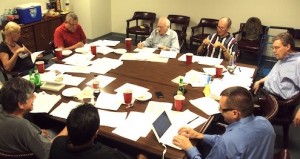Living
GLAA celebrates 40 years
Activists move from the street to the suite after 4 decades of work
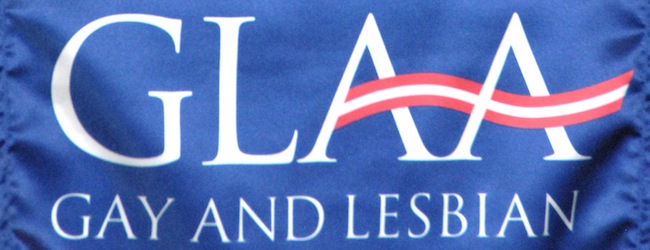
Frank Kameny remembers seeing Paul Kuntzler, his campaign manager on a 1971 bid for Congress, walk into Temple Sinai on Military Road in Washington with large reams of paper rolled under each arm and an elated look on his face.
Kameny, who founded the gay liberation movement in D.C. after being fired from the federal government in 1957, needed 5,000 signatures to get on the ballot. With the late February deadline looming, the group only had about 1,300. Realizing outside help was needed, Kameny and Kuntzler thought a gay group in New York whom they found to be one of the few “getting much of anything done,” as Kameny puts it, might be able to help. The group — Gay Activists Alliance of New York — sent two busloads of people to blanket the District one Sunday afternoon to secure signatures.
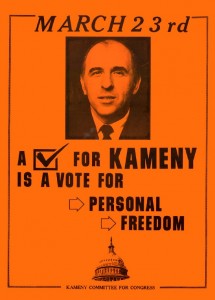
A vintage 'Kameny for Congress' poster from 1971. This campaign inspired the launch of GLAA. (Image courtesy of Rainbow History Project)
A dance was held that night at the Temple and when Kuntzler arrived, the group knew it was home free. They had about 7,700 signatures — plenty to get Kameny on the ballot. The “Kameny for Congress” campaign ended with the candidate coming in fourth in a six-way race. Though he lost, the 1,900 votes he secured while running as a then-unheard-of openly gay candidate, galvanized local activists.
Kameny’s own Mattachine Society was fading as members began to find its formality anachronistic in the Vietnam era. And the D.C. Gay Liberation Front was too radical for some others. The Kameny campaign activists were so impressed with the GAA New York group, they used about $400 left in their coffers after the election to visit the Big Apple and find out how the group operated.
By about the third week in April, a D.C. chapter was formed in the apartment of Jim McClard, the local group’s first president. While the New York group folded about a decade later, Washington’s Gay Activist Alliance is celebrating its 40th anniversary this month (in 1986 then-president Lorri Jean — now head of Los Angeles’ mammoth LGBT Community Center — insisted on changing the name to Gay and Lesbian Activists Alliance, or GLAA as it is commonly known). It’s the oldest continuously active gay organization in the country.
The group celebrates Wednesday at the Washington Plaza Hotel in Thomas Circle. Kameny, now 85, will give his founder’s Champagne toast, as has become GLAA tradition. And the group will bestow its annual Distinguished Service Awards to six local activists. Minimum donations are $50. Visit glaa.org for more information.
Kameny says the group — which lists pages of political gains on its website — has thrived under strong leadership.
“Some of it has been sheer good luck,” he said. “Throughout the ’70s, ’80s and beyond, the group had a string of presidents who were absolutely superb. I said that frequently back then and I still say it. One after another, there were just a lot of great people. There may have been one or two duds, but they really had good people, good officers who kept the organization going. They kept it effective and were very dedicated.”
The group’s first effort was also its only formal collaboration with Mattachine and the local Gay Liberation Front — a protest of the 1971 American Psychiatric Association’s convention held that year in Washington. Though GLAA disavowed the use of force and worked to “act within the existing order,” that first effort involved storming the conference and seizing the microphone in an effort to convince APA brass that gays were not mentally ill.
“We couldn’t possibly be trusted with government secrets and security clearances if we were mentally disturbed,” Kameny said.
He chuckles at the tactics now and says the groups soon went in their own direction — GLAA with Robert’s Rules of Order for its meetings, a gay-specific focus and a strong commitment to non-partisanship.
“I used to attend the GLF meetings,” Kameny said. “They seemed to just drone on endlessly and you had the impression there was a small group meeting in the attic who really ran things. And they tried to tie in all the issues of the day. My feeling has always been if you try to do everything you end up doing nothing very well.”
Former president Craig Howell, who joined in 1973 and has been active ever since, admits the heavily political nature of the group’s work limits its appeal, but said its track record over 40 years speaks for itself.
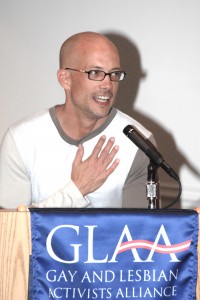
The late Jeff Coudriet, a former GLAA president, speaks at the group's 2007 awards. (Blade file photo by Henry Linser)
“There’s always been a small number doing most of the work,” Howell said. “Many times we’d just be sitting there in the living room on [former president] Bob Carpenter’s couch. If we had four or five at a meeting, that was considered good. It’s always been very wonky, so that makes for limited people, but the devil is in the details and you have to go through that trivia to get what you want. But it’s worth paying the price.”
The group counts among its victories:
• Council’s 1973 passage of Title 34, which made Washington the first major U.S. city to outlaw discrimination against gays in housing, employment and public accommodations.
• Kameny’s 1975 appointment to the city’s Human Rights Commission, a first
• A 1978 gay rights rally, the largest of its kind to that time, to protest anti-gay singer Anita Bryant
• A 1979 public service campaign that required a court fight to allow “Someone you know is gay” posters to be placed at Metro stations
• Former president Mel Boozer’s 1980 speech at the Democratic National Convention
• Repeal of D.C.’s sodomy law in 1981
• A 1982 commitment from D.C. police for fair treatment of gays
• A 1986 Council bill that prohibited insurance companies from denying coverage to HIV-positive residents
• 1990 hate crimes legislation
• A 1992 domestic partnership bill
• A 1999 settlement in the Tyra Hunter case, a trans resident who was shunned and ridiculed by EMS workers following a car accident. She died in 1995.
• Part of a broad coalition that opposed an exception from the D.C. Department of Corrections from requirements in the D.C. Human Rights Act in 2008
• Marriage for same-sex couples in 2009
Current president Mitch Wood says the group is “really a labor of love” and that its non-partisan nature “allows us to build bridges across the political spectrum.”
It’s all volunteer and operates on a small budget of about $10,000 per year, most of which goes to maintain its website and blog and stage its annual awards reception. Money comes from nominal member dues — $25 per year — and ticket sales and donations. The group meets twice monthly for about 90 minutes, mostly at the Charles Sumner School but sometimes at the Wilson building. Meetings are usually followed by dinner and drinks, often at Dupont Italian Kitchen. New members are always welcome.
Among GLAA’s signature work is its candidate ratings. Members always point out the ratings should not be seen as endorsements, but they rank those running for local office based on questionnaire responses and members’ knowledge of the candidates’ records on gay issues, to rank them on a scale that runs from -10 to +10.
“Usually in every election cycle somebody working with one of the candidates or another gets unhappy that so-and-so didn’t get a high enough rating,” Rick Rosendall, the group’s vice president for political affairs and a former president, says. “So they’ll make some snarky comments, but because we back up so thoroughly how we arrive at our ratings, we can show the point breakdowns and their responses to the questions, so they know what went into the ratings. It’s a very open process, not some beauty contest score with us up in some ivory tower.”
Over the years, the group’s ratings gained heft. Though he notoriously voted against the marriage bill, Council member Marion Barry initially scored a -10 during his run for mayor in the early ’80s. The low score led him to work with the local gay community and for years he was seen as a supportive public official.
Rosendall said the group’s decades of groundwork pays off even in unlikely places. He cites the two Council members — Barry and Yvette Alexander — who voted against marriage, and also Council member Harry Thomas Jr., who opposed the infamous club relocation bill for gay bars in 2007.
“They’ve all at various times emphasized their pro-gay credentials,” Rosendall said. “Even though Barry did speak at one of Bishop [Harry] Jackson’s rallies in Freedom Plaza, it was a far cry from the hateful rhetoric you hear from state legislators. … And GLAA can take some of the credit for that, but the community has played a key role in this as well. … It’s not just a handful of policy wonks, it’s our community who has been active in this city since before home rule.”
Gay D.C. Council member Jim Graham, who’s received many perfect scores from the group, said he respects GLAA even when he occasionally disagrees with members.
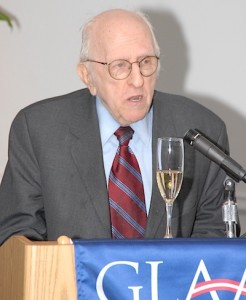
Frank Kameny giving his traditional GLAA toast at the group's 2007 awards. (Blade file photo by Henry Linser)
“They put an enormous amount of sincere effort into it,” Graham said. “I mean they really do. It’s not anything they do in a casual way. And most recently I’ve been getting pretty much 10s, so you’re always happy with a perfect score.”
Rosendall says one big change over the years has been what he calls “street versus suite” activism. The group has moved away from demonstrations largely because it’s usually given a seat at the discussion table.
“As you get more power and influence, there’s less need to be standing outside,” he said. “That doesn’t mean there isn’t a place for groups like GetEqual. Different groups are good at different things. I like to say we’re working different parts of the vineyard.”
The group has, at times, faced criticism. Within the last four years or so, some activists, including Michael Crawford, said the group wasn’t moving fast enough on the marriage issue.
Rosendall said GLAA prides itself on avoiding excessive intramural fighting among other local activist groups.
“We really try not to let things deteriorate too much into personality and battles we don’t need,” he said. “We’ve tried to keep our collective eyes on the prize and the marriage victory demonstrated that. There’s no way we would have been doing all this policy work and building coalitions if we weren’t wanting it to happen. We just wanted to make sure it stuck.”
Graham said the group deserves praise for its tenacity, especially considering the era in which it launched.
“It’s difficult to imagine how very important and pioneering they were back in 1971,” Graham said. “In this day and age when we’ve made such progress, it’s important that we pause and acknowledge those who were there 40 years ago at a time when things were so very different. … The young men and women in our community really need to stop and realize this. We’re here because of these folks.”
Real Estate
Spring updates to sell your home for pride and profit
Consider new landscaping, power washing, creative staging
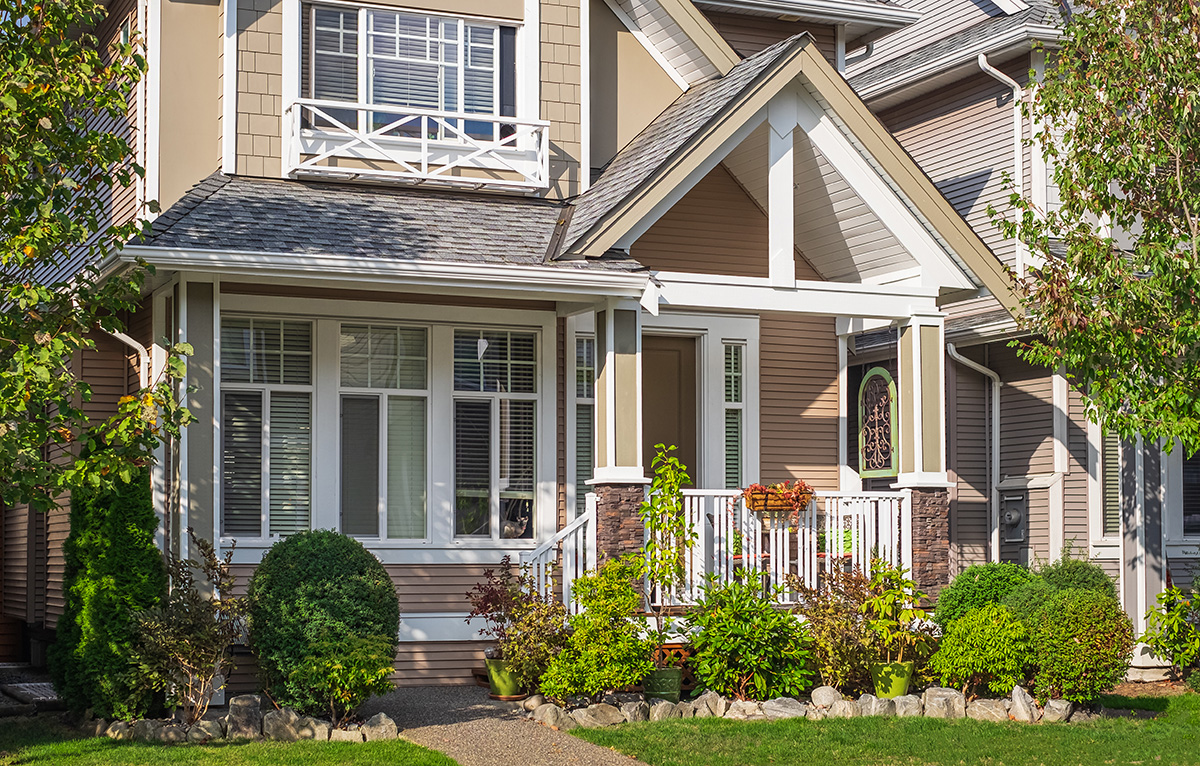
Selling a home is a big deal for anyone, but for members of the LGBTQ+ community, it comes with unique considerations—from finding affirming professionals to ensuring your home is represented in a way that reflects your values. Whether you’re a first-time gay home seller or a seasoned LGBTQ+ homeowner looking to move up, maximizing your home’s value is key to a successful and empowering sale.
Here’s how to prepare your home, your mindset, and your real estate strategy to get the most value—financially and emotionally—from your home sale.
1. Start with an LGBTQ+-Friendly Real Estate Agent
Before diving into renovations or staging, make sure your agent truly understands your needs. A gay-friendly or LGBTQ+-affirming real estate agent brings more than just market expertise—they bring cultural competence, safety awareness, and a network that supports you throughout the selling process.
At GayRealEstate.com, you can find experienced, vetted LGBTQ+ real estate agents who have been proudly serving the community for over 30 years. Working with someone who shares or supports your identity ensures your selling journey is respectful, inclusive, and effective.
2. Enhance Curb Appeal—With a Welcoming Vibe
The outside of your home is the first impression a potential buyer gets. Make it count—especially for LGBTQ+ buyers looking for a home that feels safe and welcoming.
- Fresh landscaping: Add colorful flowers, neatly trimmed shrubs, or low-maintenance greenery to appeal to eco-conscious buyers.
- Update the entrance: A new front door, stylish lighting, or even a rainbow doormat can make your home feel like a safe space from the start.
- Clean and repair: Power wash the exterior, touch up paint, and make any necessary repairs to gutters, windows, or siding.
3. Stage with Intention and Inclusivity
Home staging can add thousands to your sale price. But beyond the usual decluttering and neutral palettes, think about how your space tells a story—and who it’s telling it to.
- Create a warm, inclusive feel: Subtle touches like LGBTQ+ art, books, or even coffee table magazines can show off your personality and affirm the space for queer buyers.
- Depersonalize—but don’t erase: You don’t need to hide your identity to appeal to buyers. Let your home feel lived in and loved—while still being a blank canvas others can imagine themselves in.
- Highlight multi-use areas: Home offices, gender-neutral nurseries, or flex spaces resonate with LGBTQ+ families and professionals.
4. Update Kitchens and Bathrooms Strategically
These rooms matter most to buyers—and even small updates can yield big returns.
- Kitchen: New cabinet hardware, a fresh backsplash, and modern lighting can elevate the entire room without a full remodel.
- Bathroom: Replace old fixtures, re-caulk tubs and sinks, and add plush towels and inclusive décor.
- Energy-efficient upgrades: Touchless faucets, smart appliances, or low-flow toilets are not only trendy—they signal sustainability, which matters to LGBTQ+ buyers.
5. Make Your Home More Energy Efficient
LGBTQ+ homebuyers often prioritize sustainability. These updates not only reduce energy bills but make your home more marketable.
- Install a smart thermostat (like Nest or Ecobee)
- Upgrade insulation or windows
- Consider solar panels (especially in sun-drenched regions like California or Florida)
Bonus: You may qualify for state or federal tax credits, which can be a great selling point.
6. Know and Advocate for LGBTQ+ Housing Rights
Although housing discrimination is illegal under the Fair Housing Act, it still happens. As an LGBTQ+ seller, be aware of your rights—and those of potential buyers.
- Avoid steering or bias: Even with good intentions, make sure you’re not inadvertently influencing who views or buys your home based on identity.
- Work with affirming professionals: From inspectors to lenders, choose partners who support inclusive practices.
- Report discrimination: If you or a buyer encounters bias, report it to HUD or your local housing authority.
7. Price Your Home Right—and Market It Smartly
Setting the right price is essential to maximizing value. Your LGBTQ+-friendly agent can run a comparative market analysis, considering current trends and buyer demographics.
- Leverage LGBTQ+ real estate networks: Promote your home through platforms like GayRealEstate.com to reach an audience that understands and values your space.
- Use inclusive language in listings: Avoid gendered terms or heteronormative assumptions. Instead of “his and hers closets,” use “dual walk-ins” or “double closets.”
- High-quality photos and video tours: Showcase your home with professional, visually inclusive marketing that appeals to diverse buyers.
8. Consider Timing and Local LGBTQ+ Trends
Selling during WorldPride or just before local LGBTQ+ events may boost visibility. Also consider if you’re in or near an LGBTQ+ friendly city or neighborhood.
Not sure which areas are top destinations? GayRelocation.com tracks and shares the best cities for LGBTQ+ homebuyers, helping you tap into motivated buyers.
Final Thought: Sell with Confidence—and Community
Selling your home isn’t just about getting top dollar—it’s about closing a chapter with pride and integrity. When you center your values, work with LGBTQ+ affirming experts, and prepare your home with purpose, you’re not just maximizing your home’s value—you’re creating an empowering experience for yourself and the next owner.
Whether you’re buying, selling, or both—GayRealEstate.com is your trusted partner in every step of your journey. With a nationwide network of gay and lesbian realtors, decades of experience, and deep community ties, we ensure your home transition is safe, smart, and full of pride.
GayRealEstate.com is the nation’s leading online platform connecting LGBTQ+ home buyers and sellers with LGBTQ+ friendly real estate agents, ensuring a safe and supportive experience.
Scott Helms is president of GayRealEstate.com. To find an agent or learn more, visit GayRealEstate.com, GayRelocation.com or call 1-888-420-MOVE.
Real Estate
Navigating DMV real estate market during political unrest
Reductions in federal employment have introduced uncertainties

The Washington, D.C.-Maryland-Virginia (DMV) region has long been recognized for its robust housing market, underpinned by the presence of the federal government and a diverse economic landscape. Recent massive reductions in federal employment have introduced uncertainties, yet the area continues to offer compelling reasons for prospective homebuyers, particularly within diverse communities.
While the federal government has traditionally been a significant employer in the DMV, the region has proactively diversified its economic base. Sectors such as technology, professional services, education, and healthcare have expanded, mitigating the impact of federal job cuts. This diversification fosters some economic resilience, which offers our area a semblance of protection against the impending unknowns that we currently face. Nothing can shield real estate entirely; however, our area tends to survive these types of changes better than other parts of the country.
Despite concerns over federal layoffs, the DMV housing market has demonstrated notable stability. Analyses indicate that the number of active listings, sold properties, and median sales prices have remained steady on a year-over-year basis. This steadiness suggests that the market is adapting to changes without significant disruption.
Furthermore, while there has been a slight increase in home listings, this trend aligns with typical seasonal variations and does not solely reflect federal employment changes. The luxury property segment, in particular, continues to thrive, indicating sustained interest and investment in the region.
The DMV region is renowned for its cultural and demographic diversity, with areas like Montgomery County, Md., being among the most ethnically diverse in the nation. This inclusivity extends to various communities, including LGBTQ individuals, fostering a welcoming environment that enhances the area’s appeal. Even though the current administration is fostering anti-diversity ideology, I remain confident that our LGBTQ community will continue to thrive even as these destructive forces work against us.
Local governments within the DMV have implemented policies aimed at promoting affordable housing and preventing displacement, particularly in the wake of economic shifts. Initiatives like the Douglass Community Land Trust in Washington, D.C., exemplify efforts to maintain housing affordability and support community stability.
Additionally, jurisdictions such as Montgomery County have longstanding Moderately Priced Dwelling Unit (MPDU) programs that require developers to include affordable housing in new residential developments. These policies contribute to socioeconomically mixed neighborhoods, benefiting diverse populations.
Despite Elon Musk’s brandishing of a chainsaw to the federal workforce, our real estate market continues to thrive. The DMV region maintains its appeal. Economic diversification, market stability, commitment to diversity and inclusion, and progressive housing policies collectively contribute to an environment that supports and attracts diverse communities. Prospective homebuyers can find reassurance in the region’s resilience and ongoing efforts to foster an inclusive and vibrant community. These are only a few among the many reasons to have a positive outlook while considering real estate options in our area.
It is important to consider working with brokerages, brokers, agents, lenders and title companies who align with our community and our objectives. Not all LGBTQ agents work for brokerages that support or understand the needs of the members of our community. Do your research and find out who has donated money to what political causes. Now more than ever we must support members of our community to protect our way of life and our very existence.
Stacey Williams-Zeiger is president/principal broker of Zeiger Realty Inc. Reach her at [email protected].
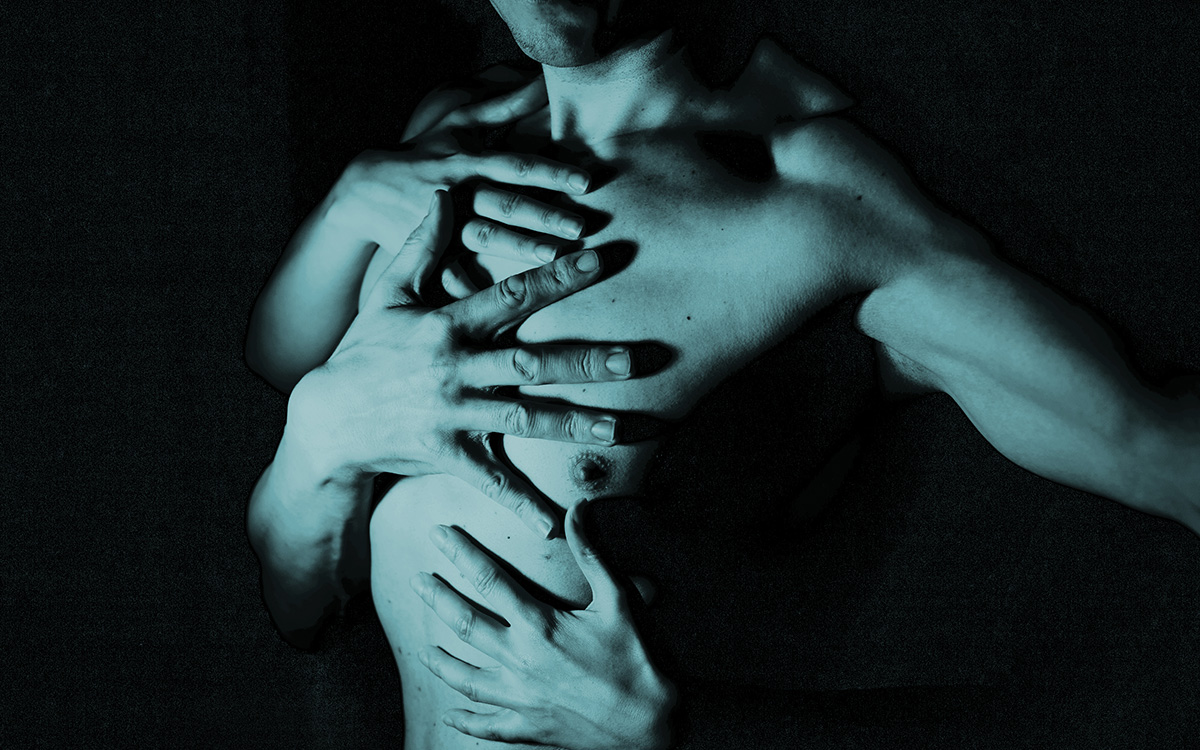
Hi Michael,
When I came to D.C. for college and came out, I was idealistic about finding true love. I made gay friends at school and watched them hooking up all the time.
It seemed like the opposite of what I wanted. I dreamed of meeting “Prince Charming” and living happily ever after. I thought I would put off sex until I met my special guy.
This went on for a while until I got too horny and impatient to keep putting off sex. The boyfriend wasn’t materializing so I went online and hooked up. Actually it was a lot of fun.
Soon I was hooking up as much as any of my friends were. I kept hoping I’d still find my prince. But over time most of my energy shifted to finding guys to have sex with.
Now I’m 34. I’ve been at this a long time and I realized the other day that I don’t like my life.
I haven’t been on a real date in years but I’m hooking up multiple times a week. I’ve been with almost everyone I see on the apps whom I find attractive (where the feeling was mutual). And yes, I’ve been with a lot whom I didn’t find attractive because I was horny.
I look at myself and I think, yuk. I don’t like whom I’ve become.
I feel like I am addicted to hooking up. I just keep craving something. The release but mostly the attention, that the other person finds me hot. After I come, I feel like the whole thing was pointless, and a little disgusted with myself. Advice?
Michael replies:
You’re using hookups not just for sex, but as a way to feel good about yourself by getting positive attention from others.
But other-validation is like junk food, a sugary snack that staves off hunger for a few minutes and never really fills you up. All those guys you hook up with? The attention feels great, but as you wrote, that feeling lasts until your orgasm. And then you’re back to chasing it.
As with junk food, the other-validation you get when you hook up is a lot of empty calories. Having someone you don’t even know agree to have sex with you says nothing meaningful about your worth or even your attractiveness.
Yet another problem: If you believe that you need other-validation, you will do all sorts of self-damaging behaviors to get it—such as hookups that leave you feeling empty and disgusted. I’ve seen many people lose their self-respect in the service of getting other people’s positive attention through behaviors that violate their own integrity. Doing things that make you feel bad about yourself in an attempt to feel good about yourself is ironic, and sad.
The bottom line is that other people can’t “make” you feel good about yourself. They might give you a small temporary boost, but your self-esteem actually has to come from you. That’s why it’s called self-esteem. Once you are past a certain age, if you don’t believe that you have value, no one else can get you there. You have to validate yourself.
Let’s go big-picture for a moment: It is our parents’ job to teach us that we have value when we are little, and when that doesn’t happen, we often struggle with self-esteem throughout our lives, unless we can find a path to develop our own belief in our worth. In the meantime, we may chase other-validation in a futile attempt to fill ourselves up.
Other experiences we go through—for example, growing up gay in a hostile environment—can also do a number on how we see ourselves, and leave us grasping for affirmation from others. It takes work to get through and get past the impact of these experiences.
So how do you get better at giving yourself the validation you are seeking? There’s a great saying from the 12-step programs: If you want to have self-esteem, behave in esteemable ways.
What would it mean for you to behave in a way that you respect? Your letter provides one answer that is true for you: Stop engaging in sexual encounters that leave you disliking yourself.
Far easier said than done, right? But that doesn’t mean it’s impossible. Having gotten clarity that you don’t like the life you’ve constructed for yourself, now you actually can do something about it. Keep in mind, though, that you will face some challenges if you stop hooking up.
First: You may find it isolating and scary to stop doing something that all or most of your friends are doing. You will have to reassure yourself that you’re doing what’s right for you; that you are taking good care of yourself by choosing to avoid behaviors that leave you feeling bad; and that it’s OK to be different from “everyone else.” In other words, you are going to have to get much better at self-validation.
If you have some friends who don’t spend a lot of their time hooking up, they may be good supports for you. Some guys find camaraderie from attending a 12-step program like Sexual Compulsives Anonymous (SCA).
Second: People often use hookups (and sex) not just for sexual gratification, but to soothe anxiety, stress, depression, and other uncomfortable feelings. If you stop hooking up, you will likely need some other ways to keep yourself calm and to steady your mood. Exercise and meditation are two obvious means.
You’d be wise to figure out new ways to fill your time that give you a sense of meaning and connection. I can’t tell you what those might be; only you can figure out what is right for you. They might include developing or deepening warm friendships, taking good care of yourself, finding a new activity that interests you — the list can go on and on.
If you still want to find your prince, this is the way to go about it. The cliché is true: You can’t expect anyone to like you unless you like yourself. If you build a life rich in fulfilling pursuits that help you to feel good about who you are and the life you are leading, you will be transforming yourself into relationship material.
Keep in mind, though, that letting yourself get close to someone through a heart connection would mean having to confront all sorts of uncomfortable emotions, including feeling vulnerable, that you have avoided by limiting yourself to crotch attachments.
That said, working to become a more solid person would help you develop the strength to tolerate the ongoing challenges of a close relationship.
Michael Radkowsky, Psy.D. is a licensed psychologist who works with couples and individuals in D.C. He can be found online at michaelradkowsky.com. All identifying information has been changed for reasons of confidentiality. Have a question? Send it to [email protected].
-

 El Salvador5 days ago
El Salvador5 days agoGay Venezuelan makeup artist remains in El Salvador mega prison
-

 State Department3 days ago
State Department3 days agoHIV/AIDS activists protest at State Department, demand full PEPFAR funding restoration
-

 Brazil4 days ago
Brazil4 days agoUS lists transgender Brazilian congresswoman’s gender as ‘male’ on visa
-

 District of Columbia5 days ago
District of Columbia5 days agoTwo charged with assaulting, robbing gay man at D.C. CVS store

